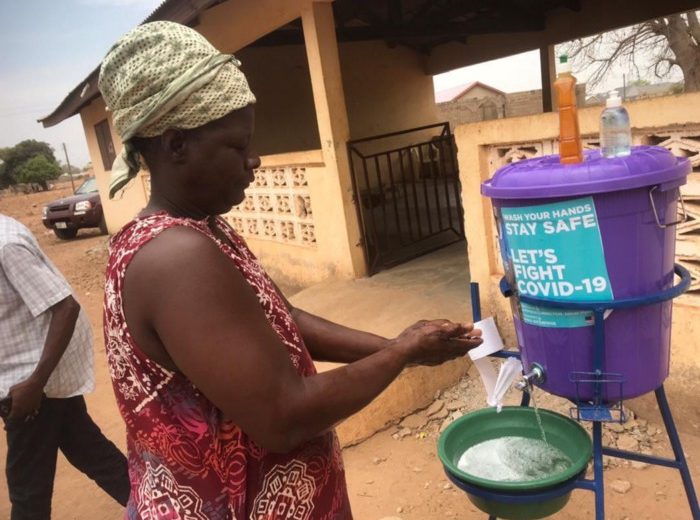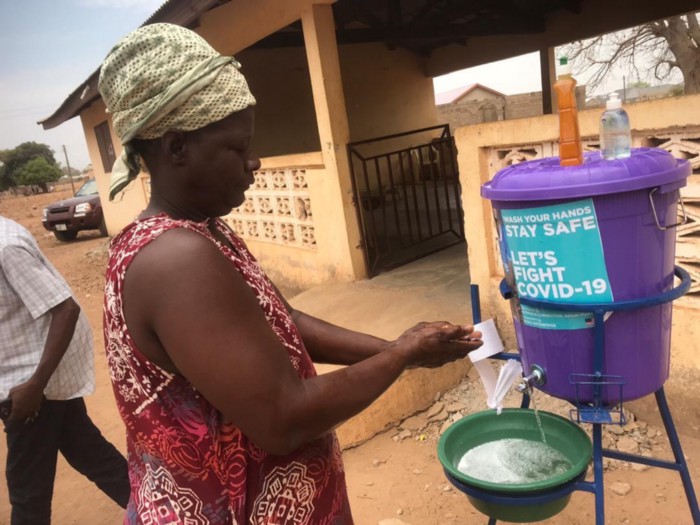
An effort to clean hands and save lives in rural West Africa
Amidst the COVID-19 global pandemic, we are all accustomed to the oft-said advice: “wash your hands with soap and water for twenty seconds and wash them often.” Backed by the Centers for Disease Control, the World Health Organization, and every other influential health organization, we have heeded the call and incorporated handwashing into our daily routines, almost religiously so. It is our first, and best, line of defense.
However, in the Upper East region of Ghana, water is scarce, and fear is palpable as the novel coronavirus has made rapid headway into West Africa. As of early 2021, according to the Africa CDC, there were over 3.5 million cases in the 55-nation African Union, with Ghana reporting the 9th highest total of all countries. Along with nearby nations Senegal and Ivory Coast, there was a nationwide lockdown in place during the early months of the pandemic in 2020, banning all public gatherings and restricting movement between regions within the country. Some of those restrictions have been eased, but there is still a ban on large gatherings, sporting events, and Ghana’s land borders remain closed. The most extensive relief efforts currently focus on the two largest cities, Accra and Kumasi, which comprise nearly a quarter of the total population.
With aid slower to arrive so far in rural areas, a community-driven project addresses this urgent need in the form of easy-to-construct handwashing stations to provide villagers with a practical way to fight the disease.
In one design, a sink is welded onto a metal barrel, with a water pump attached. Then, a small solar panel is attached to a platform that sits above the sink. The solar panel serves three key functions: providing power to the water pump; running a sensor that triggers the non-touch faucet to dispense a water/soap mixture; and feeding power to an “alarm” that beeps audibly for 25 seconds to guide proper washing time. When the alarm stops, water is automatically released from the faucet to clean off the soapy water mixture and a villager walks away with clean hands.
It’s a “wonderful invention,” said Steve Karowe, founder of African Market Baskets and a longtime Fair Trade Federation member. Having worked with the basket weavers in Upper East Ghana for over a decade, Karowe attests to their ingenuity in using the materials they have available and implementing solutions on a local level.
Karowe provides villagers in the Bolgatanga region with simple plastic jugs retrofitted with a pouring spout and replenishing soap supply as needed. They plan to give a washing station to each “family house,” which is generally made up of four generations of people, comprising 30 people on average. As he explained, “one station will serve a lot of affiliated people and will be easy access for an entire extended family.” Karowe’s non-profit wing, Every Basket Helps, provides healthcare for villagers in the region as well, and they will continue their close work with the Health Ministry to ensure access to medical care during the crisis.
This all speaks to the importance of personal responsibility in the battle against coronavirus: even though massive aid packages are rolling out on the national level, it is our daily choices, like social distancing, or sewing masks, or aiding in community efforts like this, that comprise the real heart of our defense.
In an address to the nation during the early weeks of the pandemic, Ghanaian president Nana Akufo-Addo urged his people to be “united in their determination,” and said that “it is only if we act now, purposefully, that we have a chance.”
It is in that shared sense of purpose, one handwashing station at a time, one village at a time, where the light shines brightest.

